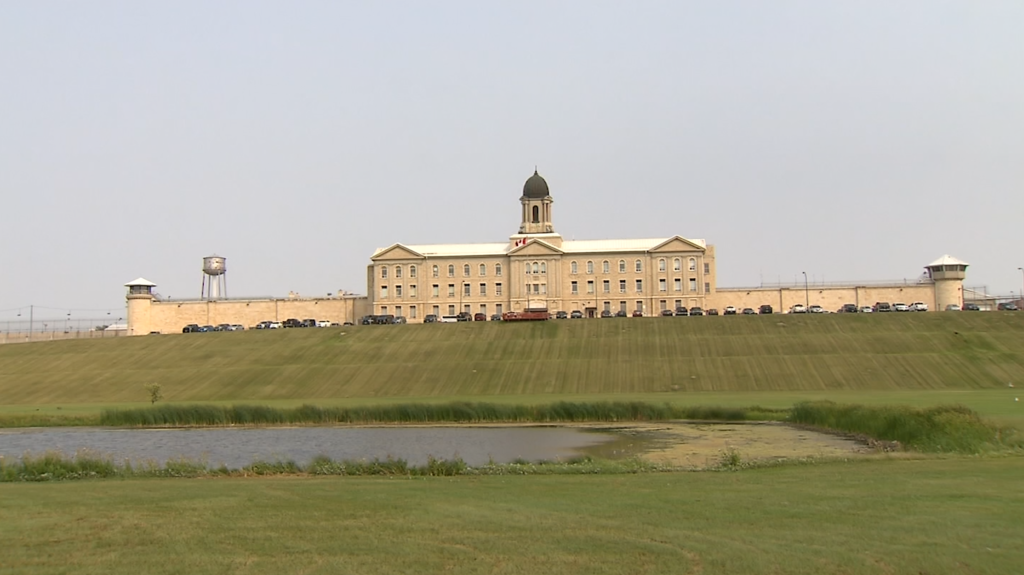Dispute over U.S. officers being armed in Canada keeps Nexus centres closed

Posted July 22, 2022 4:44 pm.
Last Updated July 22, 2022 7:48 pm.
A dispute over legal protections for American customs officers has kept Nexus enrolment centres closed in Canada more than three months after they reopened south of the border _ due in part to a clash over U.S. agents’ right to carry guns on Canadian soil.
The standoff has led to a massive backlog in applications for the program, which allows pre-approved travellers to cross the border more quickly.
The Canada Border Services Agency says the number of Nexus applications has ballooned to 341,688 from about 270,000 in April at a time when delays are wreaking havoc on travellers’ summer plans.
Canada and the U.S. remain in discussions about when the 13 enrolment centres will reopen for applicant interviews as the two sides try to clarify “legal protections” for American customs officers while they are working at the jointly staffed centres, agency spokeswoman Rebecca Purdy said in an email.
U.S. Customs and Border Protection confirmed the holdup revolves around legal “authorities” for its Nexus office staff.
“One example could include the authority to carry or have access to a firearm while on duty,” spokeswoman Rhonda Lawson said in an email.
Two senior Canadian government sources told The Canadian Press the U.S. wants its customs officers who work in Nexus centres to have the same protections guaranteed to its preclearance officers in Canada under a binational agreement, with sidearms as a major sticking point in the talks.
The sources spoke on the condition of anonymity because they were not authorized to discuss the matter publicly.
All first-time Nexus applicants whose initial submissions are approved must come in for an enrolment centre interview before they get the green light. Some existing cardholders must also book a sit-down to renew their membership, which expires after five years.
About 75 per cent of current Nexus members are Canadian citizens, and another three per cent are permanent residents, according to the border agency.
While Canadians are allowed to head to one of a dozen Nexus centres in the U.S. located near the border, the wait is a long one. Five locations have no appointments available and four have none until next year, according to the U.S. Department of Homeland Security website. The only three spots with openings in 2022 are in Minnesota and Michigan’s Upper Peninsula.
RELATED: How far in advance should you apply for a passport? Should you camp out in line?
The delay is affecting tourism and causing inconvenience for frequent border crossers.
“If you had more people with Nexus, they get through faster and they don’t clog up the other line,” said Jill Wykes, editor of Snowbird Advisor, an online resource for snowbirds.
“Many other government offices are open,” she said. “I think it’s inexcusable.”
The enrolment centres shut down in March 2020 due to the COVID-19 pandemic. Those in the U.S. reopened on April 19.
Since then, airports around the world have grappled with long security and customs queues amid staffing shortages and a massive travel rebound.
“It for sure has exacerbated the delay,” Duncan Dee, Air Canada’s former chief operating officer, said of the thinning number of Nexus travellers.
Added Teamsters Canada spokeswoman Catherine Cosgrove: “I haven’t even applied for Nexus, because there’s no point.”
Prime Minister Justin Trudeau declined to say whether firearms were at the heart of the impasse.
“I think it’s really important that we are able to stay true to our values as Canadians but respect the way we need to work together,” he told reporters Friday on a visit to Stratford, P.E.I.
“There are ongoing conversations right now and we’re going to try and make sure they get resolved in a way that is acceptable to both sides.”
RELATED: Man says spots in line at Mississauga passport office being sold for $80
The dispute has come up in recent discussions between Public Safety Minister Marco Mendicino and U.S. Homeland Security Secretary Alejandro Mayorkas, according to a Canadian government source.
Like the Fast program for long-haul trucker drivers, Nexus is a “trusted traveller” program that expedites entry for pre-cleared border crossers, typically through separate lines and automated kiosks at land crossings and airports as well as marine ports.
On top of a question portion, first-time interviews at enrolment centres include a high-resolution iris photo and fingerprinting, to be used for scanning at border kiosks.
Most Nexus processing centres are located at airports, though they are separate from customs halls.
“Why does an American officer need a gun during the Nexus interview? It’s not necessary,” said Len Saunders, an immigration lawyer based in Blaine, Wash., just south of Vancouver. He echoed one of the Canadian government sources, who noted any interviewees would already be provisionally approved following their background checks.
A Canada-U.S. agreement that took effect in 2019 laid out certain protections for U.S. border officers working in preclearance areas on Canadian soil and vice versa.
Preclearance is when customs and immigration officials from the destination country admit travellers in the country of origin _ for example, clearing U.S. customs at the Toronto airport before boarding a flight to Los Angeles. The U.S. operates preclearance sites at eight Canadian airports and one ferry crossing.
Protections under the 2019 agreement include, for example, U.S. border officers being tried in American court for most offences if they’re charged with an on-duty crime in Canada. The deal also specifies that U.S. customs officers can carry firearms wherever Canada Border Services Agency officers can.
Neither CBSA nor U.S. officers are permitted to carry guns in Nexus centres. In the case of Nexus centres inside airports, the locations are distinct from preclearance areas.
The U.S. is seeking to apply the terms of the preclearance agreement to agents working in Nexus offices, which are not explicitly covered by the binational scheme, according to Saunders and the two government sources.
Not all stakeholders see Nexus as key to reducing overall wait times.
“It would be good to have them open again,” said Mark Weber, president of Canada’s Customs and Immigration Union, which represents some 10,000 border guards.
“But opening the Nexus offices will certainly not get people on to the front line, where we really need them.”








